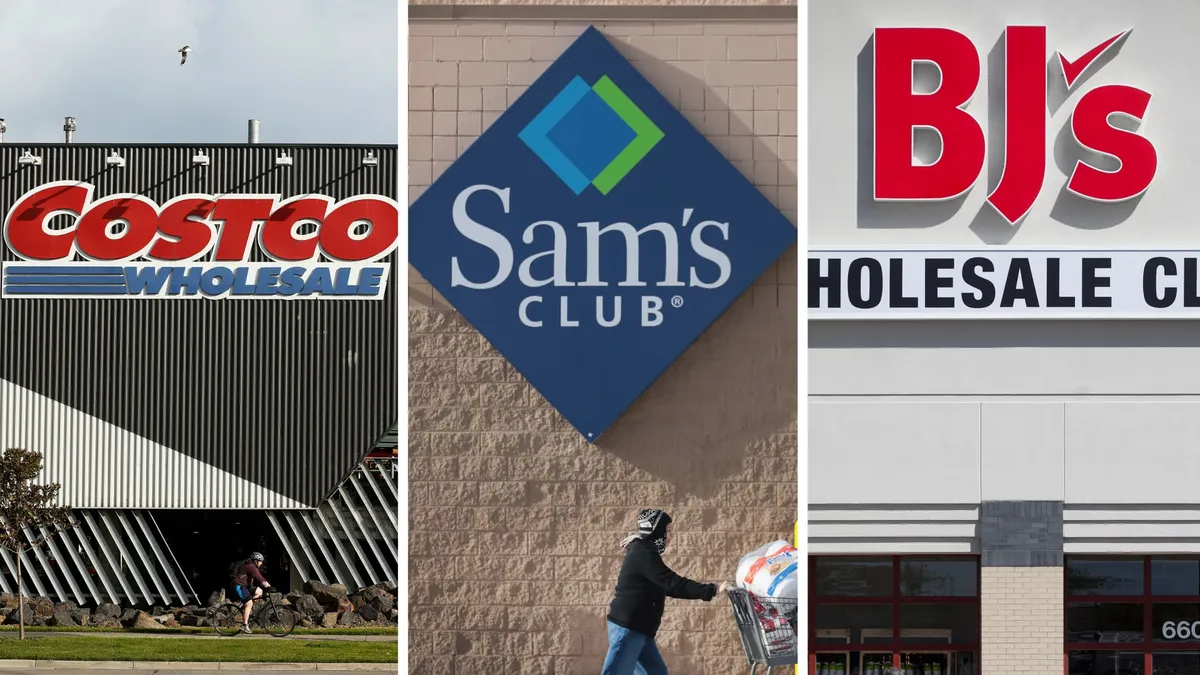
During Costco's recent earnings call, executives faced probing questions regarding a unique challenge: managing the increasing number of customers and congested parking lots. This situation highlights a significant trend among membership-based warehouse clubs, as more Americans join these retailers, driving growth for Costco, Sam's Club (owned by Walmart), and BJ's Wholesale. All three companies are expanding their presence across the United States, capitalizing on the surge in membership.
The stock performance of these warehouse clubs has been remarkable over the past five years. Costco's stock has surged approximately 215%, while BJ's has skyrocketed about 305% since the onset of the Covid pandemic in March 2020. The growth in membership and sales can be attributed significantly to the participation of Gen Z and millennial shoppers, who are increasingly drawn to club stores due to their trendy brands and convenient digital offerings.
High inflation has brought renewed attention to the warehouse club model, as highlighted by consumer analyst Bobby Griffin from Raymond James. Traditionally known for offering lower prices on essentials like gas and bulk items, these clubs have enhanced their merchandise selection, strengthened their private label offerings, and improved the overall shopping experience. Retailers have invested in store upgrades and technology to make shopping more enjoyable.
One of the secrets to the success of these clubs is their element of surprise. Beyond selling bulk staples, they have attracted attention with unique items, such as Costco’s gold bars, which generated over $100 million in sales in a single quarter. This unexpected merchandise caters to shoppers' desire for viral products, further boosting club membership and sales.
As Costco, Sam's Club, and BJ's continue to grow their membership bases, they are also ramping up their expansion efforts. Earlier this year, Sam's Club announced plans to open 15 new clubs annually while renovating its existing 600 locations. Similarly, BJ's aims to introduce 25 to 30 new clubs over the next two fiscal years, breaking into markets like Texas by opening four locations in the Dallas-Fort Worth area. Costco is pursuing an aggressive strategy, planning to open around 30 clubs each year, with a significant number located in the U.S. and others across the globe.
Despite their growth, warehouse clubs still face challenges, including an uncertain job market and tariffs on imported goods. To mitigate the impact of these tariffs, Costco has strategically diverted high-tariff imported merchandise to its clubs outside the U.S. This approach, along with their rotating brands and treasure hunt shopping experience, helps reduce vulnerability to tariffs. BJ's has committed to sourcing more holiday items from the U.S. or countries with lower tariff exposure.
The demand for convenience and affordable food options has significantly benefited warehouse clubs. Customers are increasingly choosing club chains for meals over traditional restaurants. Sam's Club has introduced items like its $4.98 rotisserie chicken and $8.98 pizzas for delivery. Additionally, sushi stations have been set up in-store, offering fresh rolls starting at around $8, now available for curbside pickup and delivery.
Historically, shopping at warehouse clubs meant long lines and a less-than-ideal experience. However, advancements in technology have transformed this perception. Sam's Club’s Scan & Go feature allows customers to scan and pay for items using their smartphones, resulting in 40% of transactions being completed this way. The company has also implemented automated floor scrubbers and high-tech verification systems at exits to streamline the shopping process.
As e-commerce becomes increasingly vital, BJ's has reported a 34% increase in digital sales year-over-year. The club's digital options, such as same-day delivery, have attracted busy families and younger consumers. BJ's CEO Bob Eddy noted that same-day delivery orders are typically larger than in-club purchases, highlighting the growing importance of digital offerings.
All three warehouse clubs have seen their membership counts soar, reflecting the United States' evolution into a "club nation." Costco boasts nearly 80 million paid household members globally, while BJ's has seen a 55% increase since its IPO, reaching about 8 million members. Although Sam's Club does not disclose exact membership numbers, its income from memberships grew nearly 8% in the latest quarter, driven partly by an influx of Gen Z and millennial consumers.
As warehouse clubs continue to adapt to changing consumer preferences and market dynamics, their focus on value, convenience, and innovative offerings positions them well for future growth. With a commitment to enhancing the shopping experience through technology and unique product selections, Costco, Sam's Club, and BJ's are well-equipped to meet the demands of a diverse and expanding membership base.